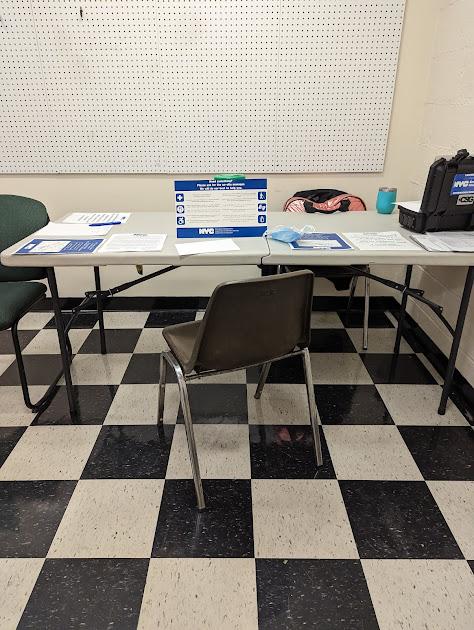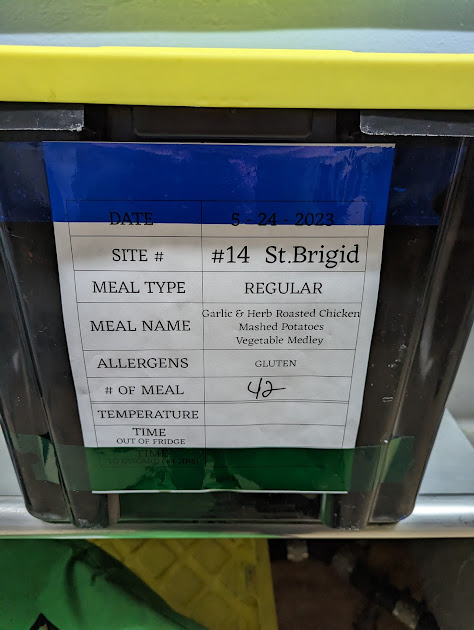Article and photos by Stacie Joy
When
Sidney’s Five was preparing to open this spring on First Avenue, the owners of the café placed ads for waitstaff and kitchen help on Craigslist.
The job search yielded just one reply for the back-of-house positions as opposed to the hundreds of responses the hospitality veterans may have received pre-pandemic. Meanwhile, only one person showed up to interview for a front-of-house slot.
As East Village bars and restaurants move on from pandemic-era closures and dining-room restrictions, owners continue to face a dearth of available employees — yet another challenge in a tumultuous 15-month-plus period that saw sales plunge before the more recent uptick in business. However, some restaurateurs are having trouble meeting the demands with the lack of workers.
Even in casual conversations with owners and managers, I have been hearing “do you know anyone who may be interested in working?” for weeks now.
A search on Craigslist finds thousands of requests for front-of-house and kitchen staff in the city, and you can’t walk more than a block or two without spotting handmade signs in restaurant windows. (And this is not a local challenge. As
The Wall Street Journal reported on Friday, restaurant and bar employment remains down by 1.5 million nationwide since the pandemic began.)
Several East Village hospitality business owners and hiring managers talked with me about their recent troubles finding staff, why they think there’s a problem, and their outlook on the future.
Multitasking to make do
At Sidney’s Five, the four partners — Kai Woo, Walker Chambliss, Edie Ugot and David Lowenstein — find themselves multitasking. Due to the staffing shortage, they are responsible for every job: washing dishes, bussing and cleaning tables, cooking meals — even snaking gutters.
The café is offering a scaled-back menu until they can fully staff the kitchen. The people they might usually hire, actors and performers earning extra money as waitstaff, left town when theater venues shut down, the owners said. Some other longtime bartenders and cooks opted for different careers during the hospitality downturn of 2020.
“Much of the industry staffing left New York during the pandemic, and it will take time for everyone to return,” Lowenstein said. “In addition, there may be another group who are still here but are afraid to return to work because they live with relatives who are vulnerable to COVID. This group may be waiting until there is a higher vaccination rate in the city.”
“And there is another group who can collect sufficient unemployment benefits until September ... so returning to work doesn't make financial sense," he continued. "Finally, workers who remained in their roles and are likely happy with their workplace and compensation because of how desperate employers are to staff up.”
Lowenstein wonders if some kind of government cash bonus or tax benefit would encourage people to return to work.
“I don’t support removing/reducing the unemployment benefits early, the way many governors are doing across the country,” he said. “I would support some positive encouragement, though. It might also help the situation if state or local government-subsidized wages for new hires to offer a competitive rate. As a new restaurant, it is more difficult for us to offer $25/hour to a line cook when we aren’t even taking wages ourselves yet.”
At
Van Da, chef-owner Yen Ngo talked to me after a long night of cooking and running her well-regarded Vietnamese restaurant on Fourth Street.
Ngo’s executive chef is pregnant, and she and her partner (who also worked as
a Van Da chef) have left to stay with family.
Since Ngo cannot find someone who specializes in Vietnamese cooking, she’s behind the burners whenever the space is open — five nights per week.
Ngo cited several reasons for the shortage of restaurant employees.
“When the pandemic hit, most restaurant workers were laid off, some moved out of the city. Some have had the time to reflect at home and want a career change,” she said.
At Van Da, 20 percent of the staff went back to school, while another 30 percent moved out of the city.
“Restaurant work is hard and often unappreciated. It is easier to find front of the house now since the jobs are easier, and the pay is better than being cooks or preps,” Ngo said. “I wish all workers would get paid according to their skills rather than [relying on] tips. It’s complicated. Most people do not understand how broken the system is if they don't run or own restaurants.”
Ngo and other restaurant owners have experienced other shortages, including supplies, as well as higher costs.
“Finding good products [is difficult]. There are shortages of good beef and pork, not to mention the huge increase in cost,” Ngo said. “Our beef and pork prices more than doubled.”
Julio Peña, an owner of the Italian wine bar and restaurant
Il Posto Accanto on Second Street, said they have always relied on word-of-mouth for waitstaff. For kitchen crews and bussers, they have used employment agencies. Neither source is turning up many candidates these days.
Between unemployment benefits and career changes (he said that many back-of-the-house workers are now in construction), Peña is left with few options.
“There’s not much you can do…trim your hours of operation, ask customers to be patient, serve fewer people, and hope it works out,” he said.
Receiving fewer applicants
Ike Escava operates three outposts of The Bean in the neighborhood. At the coffee shop’s Third Avenue location, Escava talked about his experiences in barista pandemic staffing.
“It’s been a [hiring] challenge, although better lately. It was tough to find people who want to work. We have signs on the doors of all of our restaurants, advertisements on Indeed.com, and people can apply on our
website,” Escava said. “We are getting fewer applicants…people don’t want to work if they are getting, say, $700 a week from the government not to work.”
In his opinion, the government should offer the $300/week
PUA Cares Act to everyone, including those who have re-entered the workforce.
“It would be an incentive to return to the workplace, and people would still get their extra $300 weekly,” he said.
A hiring manager at an upscale health-conscious restaurant, who wasn't authorized to speak on the record, discussed his difficulties finding staff.
“The most common statement I’ve heard over the past few months is ‘it’s because people are still receiving unemployment benefits.’ I do feel this is a factor. It is also a simplification of reality,” the hiring manager said. “The reality is that these industries, as rewarding as they can be, are not easy places to work. Folks who have spent their careers serving others have often felt underappreciated. What this past year has offered was a glimpse into what it would be like to pursue other desires and skills while maintaining a healthier work/life balance.”
Being based in NYC, the hiring manager said we had the unique experience of the mass migration out of the city.
“This is something we are seeing that’s changing,” he said. “It seems like every week there are more and more people moving back or to the city for the first time.”
And as for finding and hiring candidates, “We have started casting a much larger net. The first thing we did was to diversify where we are looking for candidates. I believe we have job postings on four or five sites currently. We have also adjusted experience requirements, job history, etc., which is tricky because we also want to maintain our level of service and experience.”
Being kind and understanding
At the Korean-American restaurant
Nowon on Sixth Street, chef Jae Lee expounded on the difficulties in hiring.
“It’s a very touchy subject to point out the reason why but let's speak about what the operators noticed. When unemployment benefits were to end last year, we saw an uptick on many back-of-house and front-of-house professionals applying for positions,” Lee said. “When the unemployment benefits continued, the applicants were no longer there. Every operator says the same thing; they are short-staffed, and it feels almost impossible to hire anyone.”
Regarding candidates, “We have posted ads on culinary agents and have boosted posts, which honestly did nothing to bring in more applicants. We also tried to hire through word-of-mouth, which didn’t work either.”
“We were able to hire two new front-of-house support staff who are college students,” he continued. “We are hiring green candidates who we can mold rather than hiring experienced professionals who don’t need much training.”
Lee closed our conversation with a sentiment I’ve heard from almost everyone interviewed for this story.
“Please be kind and understanding while restaurants and bars are trying their absolute best to make it work,” he said. “Please be nice to the staff who chose to come into work to serve and cook for you. We know we have work to do, and we are diligently working hard to get there.”



















































